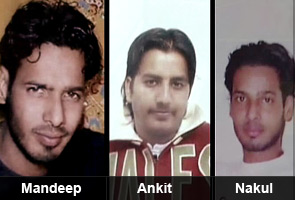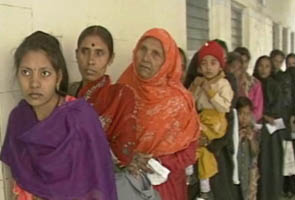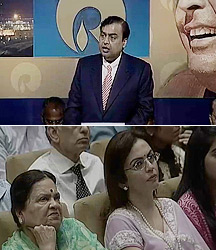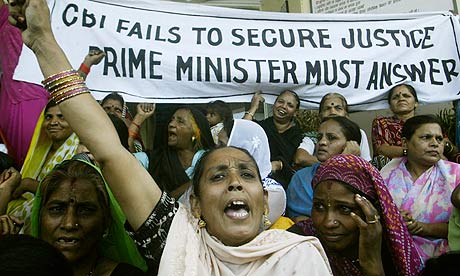
China signed a deal with Pakistan for building two new nuclear reactors just four days after India and the US formally inked an agreement for implementing their 123 agreement, a pointer to the larger geopolitics behind the deal that has created anxieties in New Delhi and Washington and a fresh dilemma for the Nuclear Suppliers Group (NSG).
The timing of the deal reveals a larger strategic design on the part of China to use its all-weather ally Pakistan to contain the rise of India, and turns the spotlight firmly on Beijing's determination to defy global rules, if necessary, to create a counter-balance to New Delhi in South Asia.
According to sources in the know, an agreement for the Chashma-3 & Chashma-4 twin projects was signed on Oct 15, 2008, four days after India and the US formally inked their pact in Washington.
China and Pakistan signed a contract for the project on Nov 20, 2008. Another fuel supply guarantee agreement was signed Sep 30, 2009. After firming up various facets of the deal over two years in secrecy without informing the NSG, the Pakistan Atomic Energy Commission (PAEC), China Zhongyuan Engineering Corporation (ZEC) and China National Nuclear Corporation (CNNC) signed an agreement on March 31, 2010, for the validation of contract for the 340 MW Chashma Nuclear Power Plant's twin units C-3 & C-4. The deal was made public by Beijing soon after.
China is trying to justify the deal on grounds that these two additional reactors were "grandfathered" under an earlier deal that predates its entry into the NSG in 2004 and has cited Islamabad's dire energy situation as a pretext for entering into this arrangement.
The argument is specious as China and Pakistan started negotiations over new nuclear reactors four years after it entered the 46-nation NSG. In an oblique reference to the deal, the NSG's June 21-25 plenary at Christchurch, New Zealand, has rightfully called for consultations and transparency about the deal.
But it will be tough to push it through the NSG, given Pakistan's dubious proliferation record epitomized by the A.Q. Khan network, says K. Subrahmanyam, a well-know strategic affairs expert who advised the Indian government on the nuclear deal with the US.
The NSG guidelines currently bar the transfer of atomic technology to countries which have not signed the Nuclear Non-Proliferation Treaty (NPT), a reference to India, Pakistan and Israel, the three holdout states against the NPT regime. However, the George Bush administration invested huge political capital to push for a one-time exemption for India, both in the US Congress and in the NSG, citing India's impeccable non-proliferation record.
During his visit to Pakistan shortly after the landmark visit to New Delhi in March 2006, Bush had told then Pakistan president Pervez Musharraf that India and Pakistan are two different countries with different needs and different histories, thus making it clear that Islamabad couldn't hope to get a similar nuclear deal from Washington.
The geopolitics of the China-Pakistan nuclear deal goes back to this explicit rejection by the US and a perception in China's power circles that the deal was designed to contain its rise.
This accounts for Beijing's hostility to the India-US deal right from the time it was struck July 18, 2005, and manifested itself in the last-minute failed attempt to block the waiver for India at the Sep 4-6, 2008, NSG special meeting.
At that time, Beijing had couched its opposition in terms of its impact on the global non-proliferation regime and insisted that it should not be discriminatory, a euphemism for a similar deal with its trusted ally Pakistan.
Now, Beijing is trying to subvert the same NSG rules in whose name it voiced its reservations over the India-US deal by giving a similar deal, albeit a much smaller one, to Pakistan, say experts.
China, after all, accounts for over 60 percent of Pakistan's military hardware exports and is the source of cutting-edge fighter jets and missile frigates. In a $6- billion deal, China is supplying its most advanced home-made combat aircraft, the third-generation J-10 fighter jets to Pakistan.
"The reasons are two-fold: one, Beijing is trying to project itself as a power on a par with the US which can rework global games for a friendly country like the US did for India and, secondly, it wants a piece of global nuclear pie," says Srikanth Kondapalli, a China expert at the Jawaharlal Nehru University in New Delhi.
"China does not want to miss out on the burgeoning nuclear business. It is not content to be an importer of civil nuclear technology from countries like France, but it wants to be an exporter of atomic power technology. It's lucrative business, running into billions of dollars," Kondapalli told IANS.
But the larger target is the rise of India. "China wants a counterweight to the 123 agreement and to a rising India by keeping the latter confined to South Asia," says Kondapalli.
"In their own ways each is using the other to balance India as India's disputes with Pakistan keep it preoccupied, failing to attain its potential as a major regional and global player," says Harsh Pant, a strategic expert at King's College, London.
But there are serious hitches on the way. The deal became public in April shortly before US President Barack Obama convened the Nuclear Security Summit.
It remains to be seen how China plays the NSG over its Pakistan deal if it expects to be seen as a responsible stakeholder in the international system, say experts. A concerned India, meanwhile, has tapped friendly NSG countries to oppose the deal, but has tactfully maintained that such arrangements should be transparent and conform to existing NSG norms.
Source http://www.hindustantimes.com/newdelhi/Why-China-struck-N-deal-with-Pakistan-4-days-after-Indo-US-deal/564664/H1-Article1-564692.aspx












 Nityananda, whose judicial custody was extended to June 23, landed in controversy in March after a local TV channels aired purported video footage showing him in a compromising position with a Tamil actress. He was arrested from Solan in Himachal Pradesh on April 21.
Nityananda, whose judicial custody was extended to June 23, landed in controversy in March after a local TV channels aired purported video footage showing him in a compromising position with a Tamil actress. He was arrested from Solan in Himachal Pradesh on April 21.
